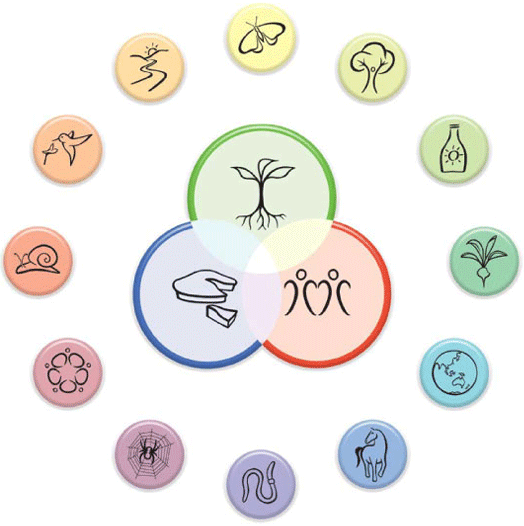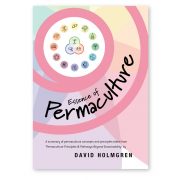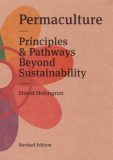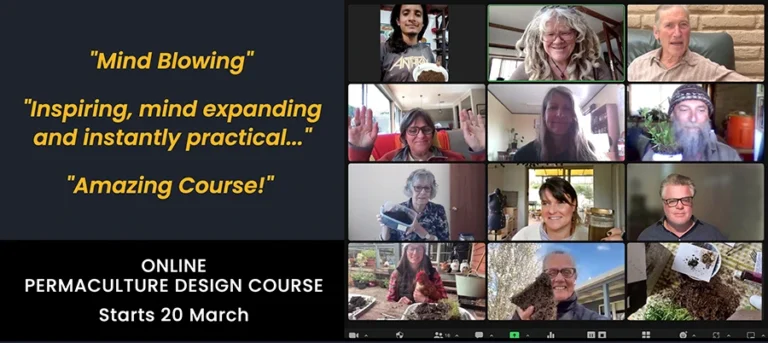
Thinking tools, when used together, allow us to creatively re-design our environment and our behaviour in a world of less energy and resources
The foundations of permaculture are the ethics (centre) which guide the use of the 12 design principles, ensuring that they are used in appropriate ways.
These principles are seen as universal, although the methods used to express them will vary greatly according to the place and situation. They are applicable to our personal, economic, social and political reorganisation as illustrated in the permaculture flower.
Each principle can be thought of as a door that opens into whole systems thinking, providing a different perspective that can be understood at varying levels of depth and application.
Click on each of the principles icons to find out more, including a song by Charlie Mgee about each of them – available on the album Permaculture: A Rhymer’s Manual. A free poster download of the principles is also available.
The short video below gives an overview of how the ethics and design principles relate to each other and how they must be thought of together, even as we explore them individually.
For a deeper insight make sure you read the Essence of Permaculture, a summary of David Holmgren’s seminal work Permaculture: Principles and Pathways Beyond Sustainability.







